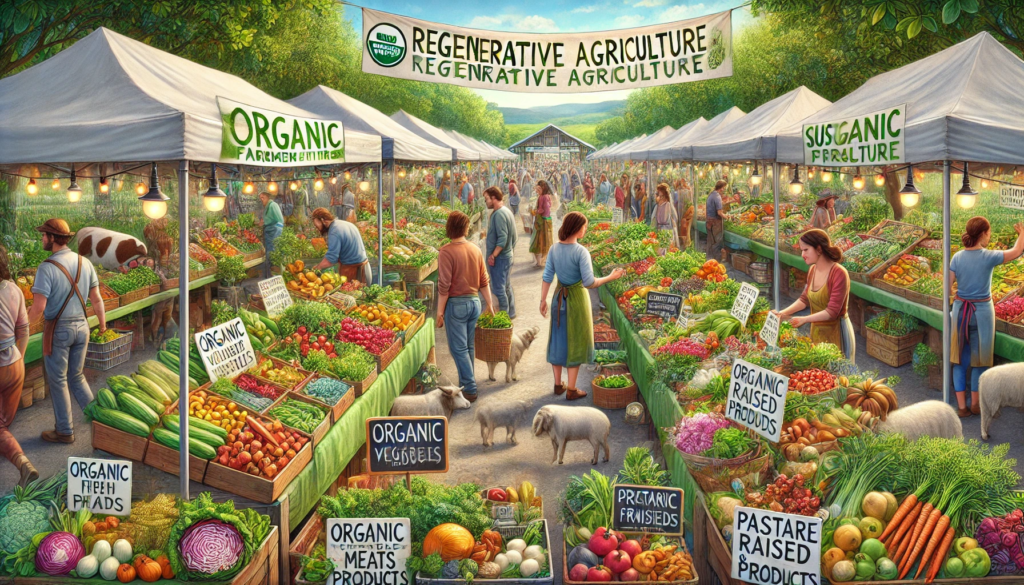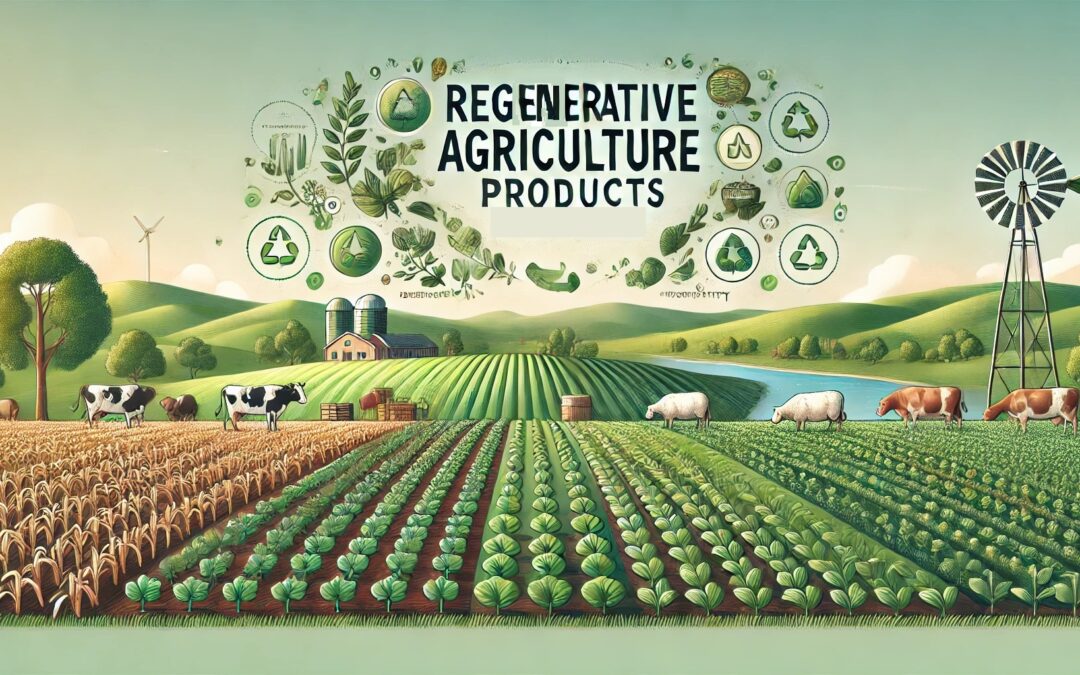Introduction
The agricultural landscape is evolving rapidly as consumer attitudes and market trends increasingly favor products derived from regenerative agriculture. With growing public awareness of the environmental and health benefits of regenerative practices, there is a rising demand for products that align with values of sustainability, biodiversity preservation, and ethical farming. This article delves into how market trends and consumer perceptions of regenerative agriculture products are shifting, reshaping the agricultural sector.
The Principles of Regenerative Agriculture
Regenerative agriculture prioritizes ecologically sound farming methods, emphasizing soil health, biodiversity, and ecosystem resilience. Consumers are becoming more informed about the negative impacts of traditional farming, such as soil erosion, water pollution, and biodiversity loss. Consequently, there is a growing market for products produced through regenerative farming methods, which are seen as promoting ethical treatment of animals, reducing carbon footprints, and supporting healthier ecosystems.

Factors Influencing Consumer Interests
Two major factors influencing consumer interest in regenerative agriculture products are transparency and traceability. Modern consumers are keen to know the origins of their food, the production processes involved, and the environmental impacts of their consumption. Certifications like Regenerative Organic Certification (ROC) and USDA Organic provide assurances that products meet stringent ethical and environmental standards, instilling confidence in consumers’ purchasing decisions.
Regenerative agriculture products are often associated with superior quality and health benefits. Healthy soils produce nutrient-dense crops rich in vitamins, minerals, and antioxidants, and livestock raised on pasture-based systems tend to be healthier. This nutritional quality appeals to health-conscious consumers who value natural, whole foods. Additionally, regenerative methods can enhance the flavor and texture of food products, making them more attractive to discerning consumers.
Growing Demand for Regenerative Products
Market trends indicate a rising popularity of regenerative agriculture products across various sectors. In the food industry, regenerative principles and sustainably produced foods are increasingly embraced by restaurants, grocery stores, and food producers. Retailers are stocking more products labeled as organic, sustainably sourced, or regenerative to meet consumer demand. Beyond food, regenerative agriculture also extends to fabrics, cosmetics, and other consumer goods that prioritize environmental stewardship.
The increasing demand for regenerative products significantly influences farmers and ranchers to adopt regenerative practices. As consumer interest in sustainable products grows, regenerative farming approaches help farmers meet market demands, reduce input costs, and improve soil health. Government incentives, subsidies, and support programs further encourage the transition to regenerative agriculture, promoting the broader adoption and scaling of these methods.
Conclusion
Market trends and consumer perceptions play a crucial role in the acceptance and spread of regenerative agriculture techniques. As sustainability, biodiversity, and ethical farming become more important to consumers, the demand for products derived from regenerative agriculture is expected to continue rising. This trend not only supports healthier ecosystems and higher-quality food but also fosters a more sustainable agricultural system that can meet the needs of both the present and the future. Driven by consumer ideals and market forces, regenerative agriculture represents a significant shift towards a more socially and environmentally responsible approach to food production.
For more insights into consumer perceptions of regenerative agriculture products, visit EAT Community. Join our community to stay updated on the latest trends, participate in discussions, and support the movement towards a sustainable and ethical agricultural future. Sign up today and be part of the change!
Related Articles and Resources:
- The Essential Guide to Regenerative Agriculture: A Sustainable Future for Farming
- Traditional Agriculture and its impact on the environment
- Regenerative Organic Certified (ROC)
- Why Livestock Farmers Should Embrace Innovative Farm Management Practices
- How Regenerative Agriculture Contributes to Sustainable Food Systems


Recent Comments